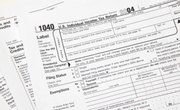If you work long enough and contribute the required amount to the Social Security system, then you will receive the benefits when you retire. However, how much ultimately ends up in your pocket will depend on where you live during your retirement. Some states have more retirement-friendly systems than others.
For example, you could opt to retire in Maine, with has around 580,000 people aged 50 years or older. The number may seem insignificant until you realize that it accounts for around 44 percent of the state’s population. So, if you are looking to be around many people within your age group while having some breathing space, it’s worth trying out.
But you may want to consider what the Maine state retirement system and Social Security issues are like. For that reason, it would be best to ask yourself relevant questions.
Does Maine Have State Income Tax?
You may decide to work part-time while in Maine. Alternatively, you may want to enjoy your unearned income from investments while pursuing your hobbies. It’s worth noting that part of your Social Security benefits may fall under the latter category. For those reasons, you need to consider income tax.
Maine has a state income tax for any income you earn within its boundaries after living there for at least 183 tax days. The Maine state tax percentage ranges from 5.8 to 7.15 percent, depending on your income and filing status.
For example, in 2022, if you earn $23,000 or less and file as single, you will pay 5.8 percent in state income taxes. But if you earn $54,450 or more and file as single, you will pay $3,457 as taxes and an additional 7.15 percent over that amount.
Read More: Deducting State & Local Tax on Your Federal Taxes
Does Maine Tax Social Security?
In 2022, the maximum amount of Social Security benefits you could receive will be $4,194 per month. However, many people will not enjoy that amount. Instead, most people will get an average of $1,657 each month, and couples will obtain $2,753.
Unfortunately, when you earn beyond a specified amount, part of your Social Security benefits could be taxed at both the state and federal levels. Below are the conditions for taxation.
- If you file taxes as single and your income is between $25,000 and $34,000, you may pay taxes on up to 50 percent of your benefits. And if you earn more than $34,000, you could pay taxes on up to 85 percent of your benefits.
- If you file as part of a couple and earn a combined income of between $32,000 and $44,000, up to 50 percent of your benefits may be subject to taxation. On the other hand, if you earn more than $44,000, up to 85 percent of your Social Security benefits may be taxed.
Luckily, while you have to watch out for the Maine state income tax, your Social Security benefits are exempt from the income tax calculations.
Read More: How to Calculate Social Security Tax
Other Maine Retirement Taxes
You also need to consider Maine retirement taxes as they apply to pensions and distributions when choosing a place to settle after working for so many years.
First, the first $10,000 of any retirement income taxed at the federal level will not be taxed within Maine. So you can deduct that amount when calculating what you owe in taxes. However, your Social Security benefits count toward this amount. Also, your retirement distributions will be subject to state income tax.
Maine also exempts military retirement income from taxation. So, if you are a veteran, it is worth considering. Also, it excludes railroad retirement benefits from its tax calculations.
In Maine, other taxes you may pay include sales, estate, property and excise taxes.
Maine is not the most retirement-friendly of all the U.S. states. But neither is it the worst. So, you can weigh the taxes you would pay and determine whether you can afford them before deciding to settle in the state.
For example, if you are a military veteran, have Social Security benefits and some retirement distributions from your time as a civilian employee, Maine could work for you pretty well.
References
- SeniorLiving.Org: Maine Senior Living Statistics & Facts
- IRS.Gov: Unearned Income
- Maine.Gov: State of Maine - Individual Income Tax 2022 Rates
- Forbes: Five Ways Social Security Will Be Changing In 2022
- SSA.Gov: Income Taxes And Your Social Security Benefit
- MilitaryBenefits.Info: States That Don’t Tax Social Security Benefits
- AARP.Org: 12 States That Won't Tax Your Retirement Distributions
- Kiplinger: Maine State Tax Guide for Retirees
Writer Bio
I hold a BS in Computer Science and have been a freelance writer since 2011. When I am not writing, I enjoy reading, watching cooking and lifestyle shows, and fantasizing about world travels.

